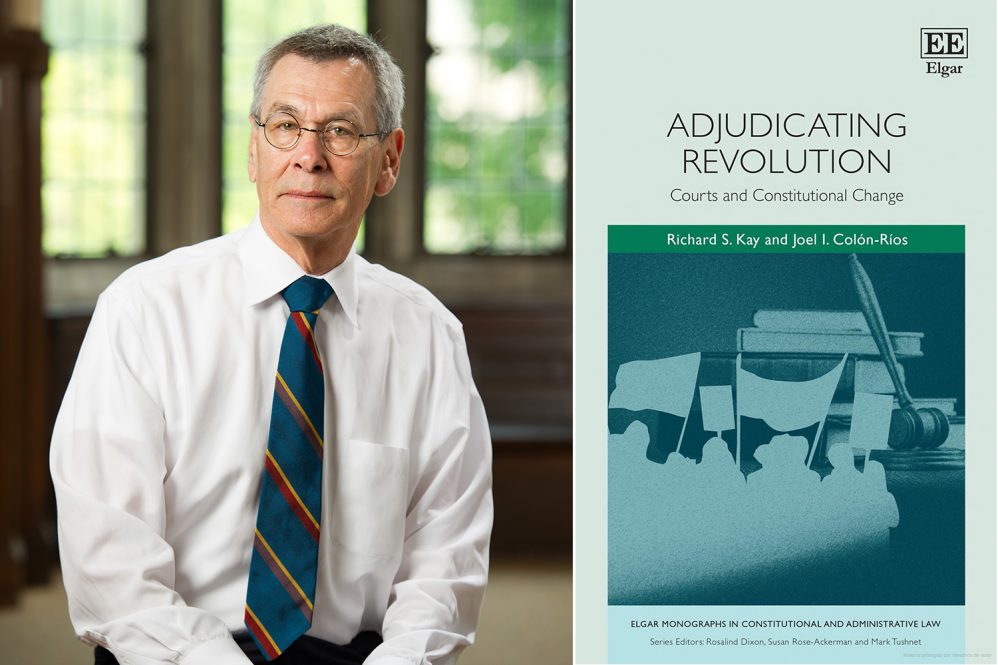A revolution that overthrows an established government is, by definition, illegal under the laws of the government it displaces. But it is necessarily legal in the eyes of the new regime it creates.
Yet legal challenges to revolutions and revolutionary governments have occurred throughout history, and they have produced some common doctrines, according to a new book by UConn Law Professor Emeritus Richard S. Kay and Joel Colon-Rios, a law professor at Victoria University, Wellington New Zealand. In “Adjudicating Revolution: Courts and Constitutional Change,” recently released by Edward Elgar Publishing, the authors expose and explore these doctrines by examining revolutions and the legal challenges to them.
The book takes up eight revolutions, including successful ones such as ones in Argentina and Peru, and failed or short-lived ones that did not firmly establish a government, such as those that produced the American Confederate States and the independence of Rhodesia. In each case, courts have adjudicated claims that raised questions about the legality of the revolutionary state.
“By bringing this kind of case to light,” Kay said, “we hoped to show how pervasive and how indelible legal ideas are — even in situations where you might think law is most irrelevant.”
“Professor Kay has produced an intellectual tour de force that spans revolutions as diverse as the Glorious Revolution of 1688 and the Russian Revolution and makes a compelling argument that courts asked to adjudicate on the legality of revolutions have risen to the challenge and demonstrated the continued salience of law even during radical societal ruptures,” said Richard A. Wilson, associate dean for faculty development and intellectual life. “Showing a magisterial grasp of comparative constitutional law and history, this creative and original book is a must-read in these turbulent times.”
Kay, a leading scholar of comparative constitutional law is also author of a previous monograph concerning revolution and legality, “The Glorious Revolution and the Continuity of Law,” published by the Catholic University of America Press in 2014. He has written and spoken widely about constitutional law, constitutional theory and comparative law. He is a member of the International Academy of Comparative Law, a past chair of the Constitutional Law Section of the Association of American Law Schools, and past president of the American Society of Comparative Law.
He joined the UConn Law faculty in 1974, was named Wallace Stevens Professor of Law, and taught constitutional law, comparative law and commercial law, as well as European Human Rights and Evidence. He served from 2014 to 2016 as associate dean for research and faculty development.



